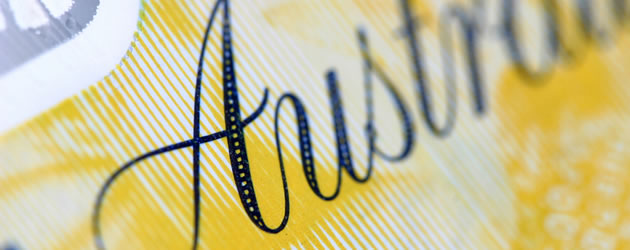EUR/AUD Exchange Rate Slips as RBA Eases Australian Housing Fears
The Euro Australian Dollar (EUR/AUD) exchange rate is down 0.3% today and is currently trading at AU$1.5931.
The Australian Dollar (AUD) edged higher against the Euro (EUR) today following comments from the Reserve Bank of Australia’s (RBA) Governor Philip Lowe last night in which he downplayed Australia’s housing problem.
Philip Lowe stated:
‘This adjustment in the housing market is not expected to derail the economy…It will put our housing markets on more sustainable footings and allow more people to purchase their own home. So there is a positive side too.’
Lowe was also bullish about Australia’s unemployment rate, saying that wage growth would unlikely cause any problem for inflation, restoring some market confidence in the ‘Aussie’.
Meanwhile, EUR/AUD failed to gain as German growth data came in as predicted. GDP for the fourth-quarter narrowly avoided a recession at 0%.
Today also saw the German IFO expectations figures for February come in at 93.8 – falling from 94.3.
These were followed by the Eurozone year-on-year CPI figures for January which also fell as expected.
However, some positive sentiment returned to the Euro following yesterday’s release of the European Central Bank’s (ECB) meeting minutes, which expressed a relatively bullish forecast for 2019.
EUR traders will likely be focusing on today’s speech by Mario Draghi, President of the European Central Bank. However, after yesterday’s disappointing Eurozone manufacturing data Draghi is likely to be dovish about the economy.
AUD/EUR Exchange Rate Rises despite Concerns over Chinese Dalian Coal Imports
AUD traders will also be focusing on developments between the US and China today as the two nations wrap-up trade talks ahead of the 1 March ‘trade truce’ deadline.
China is Australia’s largest trading partner, and any signs of flaring tensions between the two super powers weakens the risk-sensitive ‘Aussie’.
The Australian Dollar came under pressure yesterday’s banning of Australian coal from China’s biggest port, Dalian.
Coal is one of Australia’s biggest imports, and with China taking up to a quarter of orders this has heightened concerns for the Australian economy.
These fears were somewhat eased by Geng Shuang, a spokesman for China’s foreign ministry, however, who said the move was ‘completely normal’.
Geng added:
‘The goals are to better safeguard the legal rights and interests of Chinese importers and to protect the environment.’
Simon Birmingham Australia’s Trade Minister, also attempted to quell fears, saying:
‘I want to provide reassurance that we have no basis to believe that there is a ban on Australian coal exports into China or into any part of China.’
EUR/AUD Forecast: Australian Dollar Could Rise if US-China Trade Deal is Secured
The EUR/AUD exchange rate is likely to remain sensitive to political developments into next week, and any signs of a development between Australia and China over coal imports, or a consensus emerging from US-China trade talks, could provide some uplift for the ‘Aussie’.
But EUR could also rise next week if there is any signs of an improvement in the German Gfk consumer confidence survey for March on Monday.



